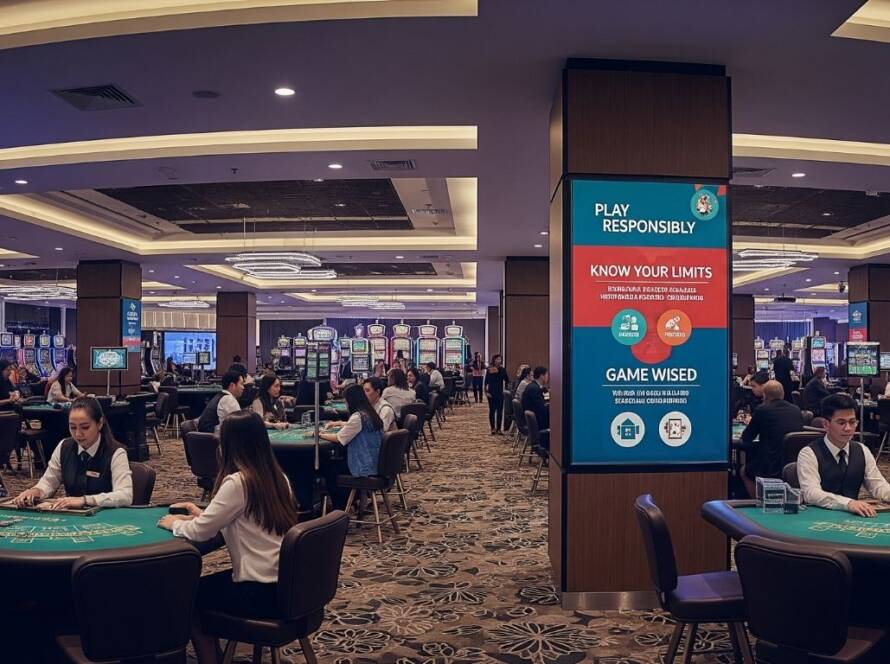The Philippines is experiencing an unprecedented surge in online gambling participation, and at the heart of this transformation are two dynamic generations: Millennials and Generation Z. These digital natives are not only reshaping how Filipinos engage with gambling but are also driving the industry’s remarkable growth trajectory. Understanding the factors behind their enthusiastic adoption of online gambling platforms provides crucial insights into the future of the Philippine gaming landscape.
The Demographic Foundation: A Young, Connected Nation
The Philippines possesses a uniquely advantageous demographic profile that naturally favors digital innovation adoption. Over 70% of Filipinos are under 35 years old, with a median age of just 26, making Millennials and Gen Z the dominant consumer groups in the country. This youthful population structure creates an ideal environment for digital-first services, including online gambling platforms.
Recent electoral data reveals that Millennials and Gen Z make up 63% of the voting population, with Millennials comprising 34.15% and Gen Z representing 28.79% of voting-age Filipinos. This demographic dominance translates into significant market influence, as these generations possess the purchasing power and digital literacy necessary to drive online gambling adoption.
The significance of this demographic shift cannot be overstated. Unlike previous generations who may have approached digital platforms with caution, Millennials and Gen Z have grown up with smartphones, high-speed internet, and social media as integral parts of their daily lives. This technological immersion makes them naturally inclined to adopt digital platforms, including online gambling apps and websites.
Digital Infrastructure: The Foundation of Growth
The explosive growth of online gambling among younger Filipinos is supported by robust digital infrastructure development. As of early 2025, 83.8% of Filipinos (approximately 97.5 million people) use the internet, representing a substantial increase from previous years. This widespread connectivity enables easy access to gambling platforms anytime, anywhere.
Mobile connectivity is particularly impressive, with the Philippines having more mobile connections than its total population. The percentage of Filipino internet traffic on web pages originating from mobile devices more than doubled—from 41.04% in December 2023 to 87.64% in December 2024, highlighting the dramatic shift toward mobile-first internet usage.
This mobile-centric approach aligns perfectly with online gambling platforms’ design philosophy. Modern casino and betting apps are optimized for seamless play on mobile devices, which are the preferred gadgets for Millennials and Gen Z. The convenience of accessing gambling services through smartphones has eliminated traditional barriers to participation and made online gambling more accessible than ever before.
Cultural Evolution: From Traditional to Digital Gambling
Gambling has deep cultural roots in the Philippines, from traditional cockfighting to basketball betting pools. However, younger generations are transforming these cultural practices by moving them into digital spaces. This shift represents more than technological adoption; it signifies a fundamental evolution in how Filipino culture expresses itself in the digital age.
The transition from physical to digital gambling maintains the social aspects that make gambling appealing to Filipino culture while adding new dimensions of convenience and accessibility. Online platforms enable players to engage with their favorite games and betting activities while maintaining social connections through chat features, live dealer games, and community elements.
Social media platforms like Facebook and TikTok have become powerful influencers in normalizing online betting among young users. These platforms are filled with gambling-related content, endorsements from influencers, and peer-to-peer sharing of gambling experiences, creating a social environment that encourages participation.
The Convenience Revolution: Instant Access and Gratification
Millennials and Gen Z value convenience above almost all other factors when choosing services and entertainment options. Online gambling platforms have responded to this demand by offering 24/7 accessibility, quick deposit options via popular e-wallets like GCash and Maya, and the ability to play or bet while on the go.
The appeal of instant gratification cannot be understated for these generations. Online gambling offers immediate entertainment, quick deposit and withdrawal processes, and the prospect of instant wins. This immediate reward system aligns perfectly with the instant gratification culture that characterizes younger generations’ relationship with digital services.
The integration of familiar payment methods has been crucial to adoption rates. E-wallets like GCash and Maya have become standard payment options on gambling platforms, enabling seamless transactions that feel natural to younger users who are already accustomed to digital payment systems.
Technology Comfort and Risk Tolerance
Research indicates that the rapid ascent of online casino gaming has become a game changer for the gambling industry in the Philippines, with younger generations leading this transformation due to their comfort with digital technologies and higher risk tolerance.
Millennials and Gen Z demonstrate exceptional comfort with digital transactions, using digital wallets, cryptocurrencies, and online banking as standard parts of their financial lives. This technological fluency removes barriers that might prevent older generations from engaging with online gambling platforms.
Studies show that curiosity, perceived control, and the excitement of risk-taking are significant motivators for online gambling among these generations. The combination of technological comfort and natural risk tolerance creates an ideal profile for online gambling participation.
Entertainment and Stress Relief: Gaming as Escape
For many Gen Z Filipinos, online gaming—including gambling—serves as a primary method for relieving stress and anxiety. The fast-paced, high-pressure environment of modern life creates demand for accessible entertainment options that provide immediate escape and relaxation.
Online gambling platforms have evolved to blend gaming, socializing, and entertainment into comprehensive experiences that cater to the multi-tasking, always-connected lifestyle of young Filipinos. These platforms offer more than just gambling; they provide entertainment ecosystems that include live dealer interactions, social features, and gamified elements that appeal to younger users.
The entertainment value of online gambling extends beyond the potential for monetary wins. Many young players appreciate the skill-based aspects of certain games, the social interaction available through live dealer options, and the overall entertainment experience that modern platforms provide.
Market Growth and Economic Impact
The Online Gambling market in the Philippines is projected to grow by 3.86% (2025-2029) resulting in a market volume of US$865.60m in 2029, driven largely by the participation of younger generations. iGaming revenue in the Philippines hit PHP58.16bn in 2023, a new record for the country, almost double the previous year’s total.
This remarkable growth reflects the economic impact of Millennials and Gen Z’s gambling participation. Their higher engagement rates, frequent play sessions, and willingness to try new games and platforms contribute significantly to industry revenue growth.
PAGCOR’s confidence in meeting their P150-billion gross gaming revenue target for electronic and online games by 2025 is largely based on the continued participation of younger demographics who show no signs of reducing their engagement with online gambling platforms.
Social Influence and Peer Networks
The social aspect of online gambling resonates strongly with younger generations who value peer interaction and social validation. Unlike traditional gambling, which might be viewed as solitary, online platforms offer community features that make gambling a social activity.
Research shows that 86% of Gen Z will opt to visit casinos with a group, indicating their preference for social gambling experiences. This social inclination translates effectively to online platforms that offer live dealer games, chat features, and community elements.
Social media influence plays a crucial role in normalizing gambling among younger users. When friends and influencers share gambling experiences, wins, and entertainment value through social platforms, it creates a social proof effect that encourages participation.
Financial Perspectives and Investment Mentality
Many younger Filipinos view gambling through a different lens than previous generations. Rather than seeing it purely as entertainment, some approach certain forms of gambling, particularly skill-based games and sports betting, as potential investment opportunities or supplemental income strategies.
This perspective is particularly relevant during economic uncertainty, when traditional employment and investment options may feel less secure. The potential for significant returns through gambling activities appeals to younger generations who may be seeking alternative financial strategies.
The quick rewards and life-changing payout potential of online gambling are particularly attractive to younger players who may be dealing with student loans, entry-level salaries, or uncertain economic futures. While this presents opportunities, it also raises concerns about responsible gambling practices.
Regulatory Challenges and Considerations
The rapid adoption of online gambling by Millennials and Gen Z has prompted regulatory responses aimed at protecting younger players. The surge in online gambling participation has led to increased cases of addiction and financial loss, prompting legislative proposals to tighten age verification, restrict advertising, and set betting limits.
The legal gambling age in the Philippines is 21, but enforcement remains challenging as underage users sometimes bypass restrictions through inadequate verification systems. This highlights the need for enhanced age verification technologies and more robust regulatory oversight.
Regulators are particularly concerned about the vulnerability of younger players to gambling addiction and financial harm. The combination of easy access, social pressure, and the instant gratification culture of younger generations creates unique risks that require targeted protective measures.
Future Implications and Industry Evolution
The dominance of Millennials and Gen Z in online gambling participation will continue to shape the industry’s evolution. Operators are increasingly focusing on mobile-first experiences, social features, and gamified elements that appeal to younger players.
The integration of new technologies like virtual reality, augmented reality, and blockchain-based gaming reflects the industry’s response to younger generations’ expectations for cutting-edge experiences. These innovations will likely accelerate as operators compete for the attention and loyalty of tech-savvy younger players.
Marketing strategies are evolving to target younger demographics through social media, influencer partnerships, and digital-first campaigns. However, these efforts must balance growth objectives with responsible gambling messaging and age-appropriate targeting.
Responsible Gaming Considerations
While the enthusiasm of Millennials and Gen Z for online gambling drives industry growth, it also necessitates enhanced focus on responsible gambling practices. The combination of easy access, social pressure, and the risk tolerance of younger generations creates unique challenges for maintaining healthy gambling habits.
Educational initiatives targeting younger players must address the specific motivations and behaviors that drive their gambling participation. This includes information about financial management, risk assessment, and the importance of maintaining gambling as entertainment rather than a financial strategy.
The industry’s long-term sustainability depends on fostering responsible gambling practices among younger players while maintaining their engagement and satisfaction. This balance requires ongoing collaboration between operators, regulators, and public health advocates.
Conclusion
The dominance of Millennials and Gen Z in Philippine online gambling represents a fundamental shift in the country’s gaming landscape. Their digital nativity, risk tolerance, social connectivity, and cultural adaptation have created the perfect conditions for online gambling growth.
While this demographic shift presents tremendous opportunities for industry growth and innovation, it also requires careful attention to responsible gambling practices and regulatory oversight. The future of Philippine online gambling will be shaped by how well the industry can serve younger generations while protecting their welfare and maintaining sustainable growth.
Understanding these generational preferences and behaviors is crucial for operators, regulators, and policymakers as they navigate the evolving landscape of Philippine online gambling. The success of this industry will ultimately depend on its ability to provide entertaining, safe, and responsible gambling experiences that meet the expectations of its increasingly young and digitally savvy user base.


